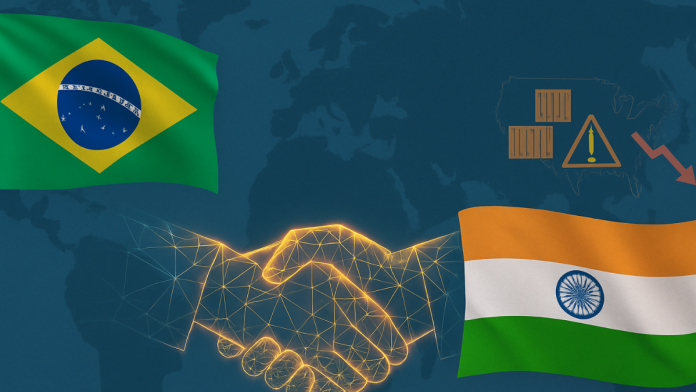Brazil is facing fresh challenges after the United States decided to impose a steep 50% tariff on many of its key exports. The move has not only hurt trade relations but also increased political tension between the two countries.
President Luiz Inácio Lula da Silva, reacting strongly to the situation, has chosen not to engage in direct talks with U.S. President Donald Trump. Instead, he is shifting focus toward other global allies — and one of the first leaders he plans to speak with is Indian Prime Minister Narendra Modi.
Growing Tensions Between Brazil and the United States
The recent tariff decision by Washington has brought Brazil-U.S. relations to a new low. Although President Trump said Lula could “call anytime” to discuss the matter, Lula made it clear that he sees no point in reaching out. “He doesn’t want to talk,” Lula stated firmly.
Brazil had been trying to work out a deal since April, holding several rounds of talks through trade officials. Vice President Geraldo Alckmin led the negotiations on behalf of Brazil. Despite their efforts, no agreement was reached.
Brazilian banks race to comply with U.S. sanctions on supreme court justice
In a last attempt to ease the strain, a group of Brazilian senators, headed by Senator Nelsinho Trad, traveled to Washington in late July. They met with U.S. senators and business leaders. However, while the delegation was still in the U.S., Trump signed the order making the 50% tariff official. Only a few Brazilian exports were spared — including civil aircraft parts, aluminum, wood pulp, fertilizers, and energy products.
The 50% tariff poses a serious threat to Brazil’s export economy, particularly for industries that were not granted exemptions. These include key sectors such as processed foods, manufactured goods, and agricultural machinery, which could now face reduced competitiveness in the American market.
Lula Chooses Dialogue With BRICS, Not Washington
With talks breaking down and no signs of progress, Lula has decided to look toward global partners outside the United States. Speaking publicly, he announced his intention to contact fellow BRICS leaders, starting with Indian Prime Minister Narendra Modi and Chinese President Xi Jinping.
“I will call Xi Jinping, I will call Prime Minister Modi,” Lula said. He added that he would not contact Russian President Vladimir Putin due to travel restrictions, but he would reach out to many other world leaders.
This step highlights a change in Brazil’s diplomatic strategy. Instead of waiting for Washington to respond, Brazil is focusing on partnerships that offer more active dialogue and mutual respect. Lula’s choice to speak with Modi reflects growing economic ties and political alignment between India and Brazil — both major players within the BRICS bloc.
BRICS has long stood as a platform where emerging economies work together on equal terms. Lula’s intent to reach out to Modi and Xi Jinping fits within this framework, signaling a shift toward partnerships where mutual respect and balanced cooperation are prioritized.
Political Undercurrents Behind the Trade Dispute
While the new tariff might appear to be purely economic, it also reflects deeper political differences. Trump has publicly supported former Brazilian President Jair Bolsonaro, who is currently under house arrest and facing charges related to an attempted power grab after the 2022 election loss.
Lula’s return to power has clearly shifted the dynamics. Without direct communication between him and Trump, trade talks have been left to lower-level officials, weakening the chance of any quick resolution.
Still, Brazil’s government, led by Lula and Vice President Alckmin, has continued diplomatic efforts to protect Brazilian industries and maintain international partnerships. But the message is clear: Lula is not waiting for a call from Washington. His focus is now firmly on leaders who are ready to engage — especially in Asia.


